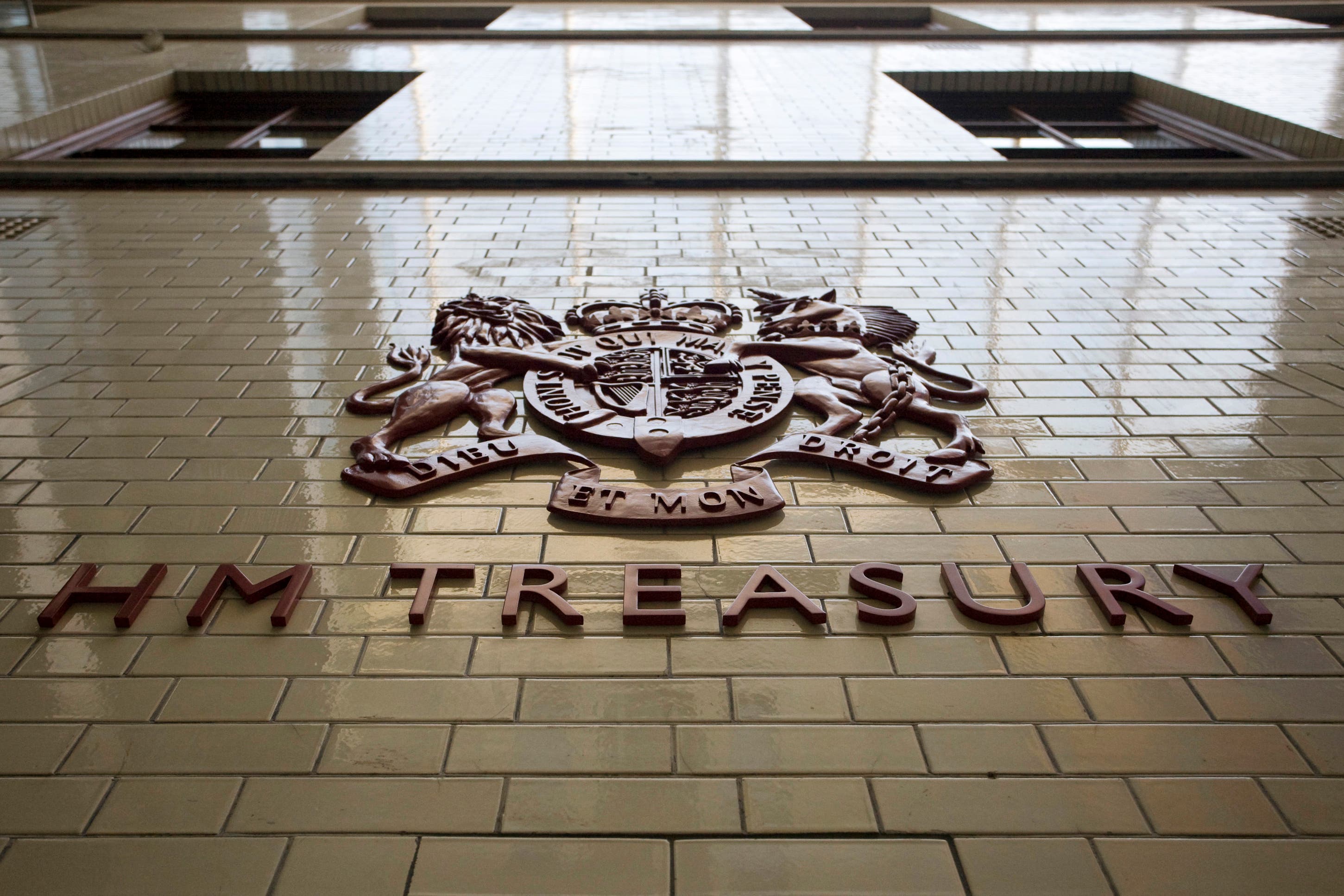Labour writes to Treasury over ‘misleading’ social media posts on tax changes
The department’s posts on X about the cut to national insurance have attracted ‘Readers added context’ notes.

Your support helps us to tell the story
From reproductive rights to climate change to Big Tech, The Independent is on the ground when the story is developing. Whether it's investigating the financials of Elon Musk's pro-Trump PAC or producing our latest documentary, 'The A Word', which shines a light on the American women fighting for reproductive rights, we know how important it is to parse out the facts from the messaging.
At such a critical moment in US history, we need reporters on the ground. Your donation allows us to keep sending journalists to speak to both sides of the story.
The Independent is trusted by Americans across the entire political spectrum. And unlike many other quality news outlets, we choose not to lock Americans out of our reporting and analysis with paywalls. We believe quality journalism should be available to everyone, paid for by those who can afford it.
Your support makes all the difference.A shadow minister has written to the Treasury’s top mandarin to raise concerns that the department has been issuing “misleading” claims on tax.
Labour’s James Murray, the shadow financial secretary, queried whether posts on social media about the reduction to national insurance complied with civil service and legal guidelines around Government messaging.
It comes as a number of posts on X, formerly Twitter, by the HM Treasury account about the 2p cut in national insurance had “Readers added context” notes applied by users of the social media platform.
Under one post stating that an average earner in the UK would earn “an extra £450 take home pay” as a result of the tax cut brought in on Saturday, a context note said the post had been “misleading”.
It is important that the public trusts HM Treasury communications and can be confident that they are accurate and not misleading or partial
It added: “When you take into account the freeze in tax thresholds and other changes the tax burden is at a post-war high.”
Prime Minister Rishi Sunak’s posts about the national insurance reduction have attracted similar context notes.
Mr Murray on Sunday shared a letter he had written to the Treasury’s permanent secretary, James Bowler.
The Ealing North MP said he was concerned communications issued by the department had presented a “partial picture of the effect of Government tax policy”.
He asked for the posts to be withdrawn or replaced and called for assurances to be made that “other inaccurate, misleading social media communications are not published in future”, particularly given 2024 is likely to be a general election year.
As announced in the autumn statement in November, the main rate of national insurance was reduced by two percentage points, from 12% to 10%, on January 6.
Chancellor Jeremy Hunt said the fiscal decision means families with two earners are nearly £1,000 better off a year.
But Labour said it amounted to a “raw deal” as Mr Hunt has kept tax thresholds frozen, a fiscal policy first introduced by Mr Sunak when he was chancellor during the coronavirus pandemic.
The frozen thresholds will provide a de facto tax rise to millions as their wages increase with inflation while tax bands remain static.
In his letter to Mr Bowler, Mr Murray said: “I am writing to you to raise my concerns that official channels of HM Treasury have made a number of claims regarding tax in recent days that are misleading.
“One communication made claims about the impact of the reduction in national insurance for the average earner.
“This is misleading because it only presents a partial account of the effect of Government tax policy.”
He said the Civil Service communications code made “clear” that information provided to the public should be “‘objective and explanatory, not biased and polemical’, and should not be liable to being ‘misrepresented as party political’”.
He added: “I do not believe these communications follow these principles.”
The Opposition frontbencher said there were also “questions” about whether the communications “meet requirements of the Communications Act” which states that Government information campaigns “’should not be partial’”.
“It is important that the public trusts HM Treasury communications and can be confident that they are accurate and not misleading or partial,” Mr Murray continued.
“I would therefore be grateful if you could confirm you will withdraw these communications, or if you will be replacing them to reflect the points above.
“Where there are breaches of the code I would welcome your reassurance that protocols are in place to make sure that other inaccurate, misleading social media communications are not published in future on the HM Treasury accounts, especially during this election year.”
The average employee - earning £35,400 - will save £450 a year
A Treasury spokeswoman said: “The Government has always been transparent about how the recent cut to employee national insurance contributions will benefit different earners.
“The average employee – earning £35,400 – will save £450 a year.
“These changes mean that for an individual on the average salary, personal taxes would be lower in the UK than every other G7 country, based on the latest OECD (Organisation for Economic Co-operation and Development) data.
“Taken together with all the changes to personal tax thresholds since 2010, an average worker in 2024-25 will pay over £1,000 less in personal taxes than they otherwise would have done if the thresholds had just been increased each year by inflation.”
It is not the first time in recent days that the Conservative UK Government has been accused of publishing misleading statements.
Mr Sunak’s claim that ministers have “cleared” the asylum backlog is being investigated by the official statistics watchdog after allegations from opponents that it is a “barefaced lie”.
The UK Statistics Authority said it was looking into the announcement as more than 4,500 “legacy” cases remain outstanding despite ministers claiming they had succeeded.